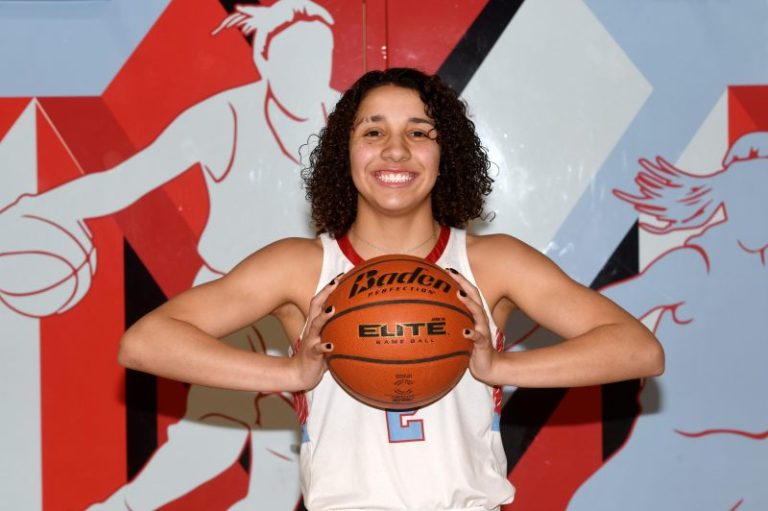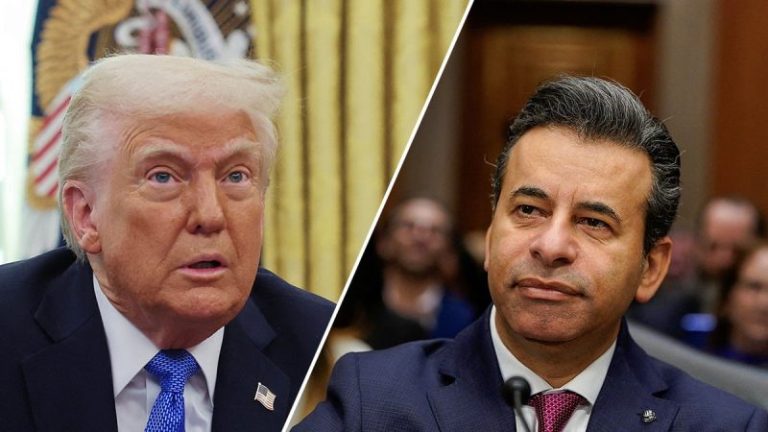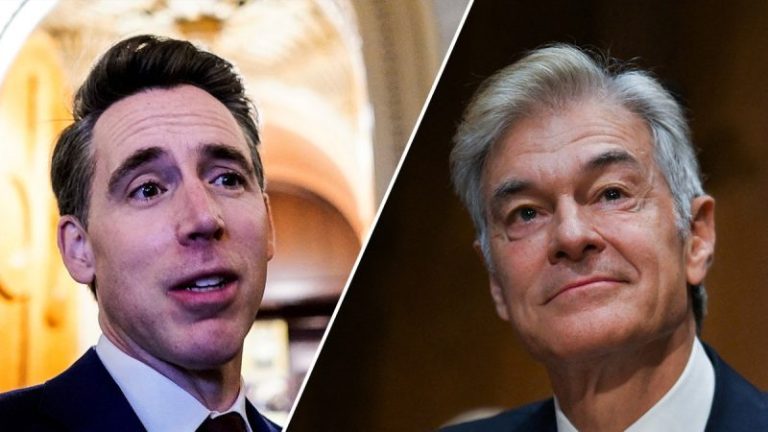NASCAR driver Kyle Busch will be racing against his son, Brexton, in a sprint car race called ‘Battle of the Busch’s’.
The race will take place at Millbridge Speedway in Salisbury, North Carolina on Wednesday.
Two-time NASCAR Cup Series champion Kyle Busch and his 9-year-old son, Brexton, will be racing against one another.
Busch announced Monday that he and his son will be competing in the ‘Battle of the Buschs,’ a head-to-head sprint car race on Wednesday at Millbridge Speedway in Salisbury, North Carolina.
The race will be shown on DirtVision, a streaming platform.
Busch, who has won more than 230 races across NASCAR’s top three national series, has been a mainstay of the sport for two decades. He appeared in his first NASCAR Truck Series race in 2001, his first NASCAR Xfinity race in 2003 and his first Cup Series race in 2004.
He and his wife, Samantha, welcomed Brexton on May 18, 2015, the same year Busch won his first Cup Series championship.
Following Busch’s annoucement about the race, Brexton playfully taunted his father on social media Tuesday, writing, ‘Can’t wait to kick my dad’s butt.’
The elder Busch responded less than an hour later, telling his son, ‘You don’t want the smoke pal. Hope you’re ready to rip the fence.’
Here’s more to know about NASCAR Cup Series driver Kyle Busch.
Kyle Busch age
Kyle Busch is 39 years old. His birthday is May 2, 1985.
Kyle Busch height
Kyle Busch is 6-foot-1.
Kyle Busch hometown
Kyle Busch is from Las Vegas, Nevada. He currently lives in Lake Norman, North Carolina.
Kyle Busch stats
Kyle Busch has 63 NASCAR Cup Series wins, which is most among active drivers. Busch has totaled 252 top-five and 385 top-10 finishes in his Cup career.
Busch has 232 victories across all three NASCAR national series, including 102 in the NASCAR Xfinity Series and 67 in the NASCAR Craftsman Truck Series.
Who has Kyle Busch driven for
Kyle Busch has driven for Hendrick Motorsports (2005-07), Joe Gibbs Racing (2008-22) and Richard Childress Racing (2023-present) in the NASCAR Cup Series. He owned his own NASCAR Craftsman Truck Series team, Kyle Busch Motorsports, before selling it to Spire Motorsports at the end of the 2023 season.
What does 18:51 mean for Kyle Busch?
The time 18:51 is military time for 6:51 p.m. and the numbers signify two numbers Kyle Busch has famously driven. That is also the time the announcement came (EST). He drove the No. 18 car for Joe Gibbs Racing in the NASCAR Cup Series from 2008-2022 and he owned the No. 51 in the NASCAR Craftsman Truck Series, which he ran for his own team, Kyle Busch Motorsports, which he sold to Spire Motorsports at the end of the 2023 season.
Kyle Busch RCR contract
Kyle Busch is in the last year of his contract with Richard Childress Racing, which began in 2023 after his 14 seasons at Joe Gibbs Racing. Busch signed a two-year contract with RCR with a team option for the 2025 season, which the team took to bring him back this year.
How much does Kyle Busch make
Kyle Busch made $16.9 million in 2024, according to Front Office Sports, which approximates to $444,736 per race for running 38 events (36 regular season races and two exhibition events with The Clash and the All-Star Race).
How long has Kyle Busch been racing?
Busch has been racing in the NASCAR Cup Series since 2004 and full-time since 2005. He started racing full-time with Hendrick Motorsports (2005-2007). Busch has driven for Joe Gibbs Racing (2008-22) and Richard Childress Racing (2023-present).
Kyle Busch last win
Kyle Busch’s last NASCAR Cup Series win was June 4, 2023, at Gateway. Busch won three races in 2023. Busch’s winless streak is 62 races.
Kyle Busch championships
Kyle Busch has won the NASCAR Cup Series championship twice, 2015 and 2019. He also won the 2009 NASCAR Xfinity Series championship.
What car does Kyle Busch drive
Kyle Busch drives the No. 8 Richard Childress Racing Chevrolet. In the NASCAR- Cup Series, Chevrolet runs a Camaro ZL1.
Kyle Busch crew chief
Randall Burnett is Kyle Busch’s crew chief.
Kyle Busch sponsors
Kyle Busch is sponsored by BetMGM, BankOZK, Cheddar’s Scratch Kitchen, LucasOil, Rebel Bourbon, Senix, Zone Nicotine Pouches, Shady Rays and Morgan and Morgan. Busch used to drive the M&M’s car for Joe Gibbs Racing.
Kyle Busch son, Brexton Busch
Kyle Busch’s son, Brexton Busch, 9, is a rising star in dirt racing. He runs in sprint cars at various races around the country and has won the Chili Bowl and the Golden Driller at the Tulsa Shootout.
Brexton Busch’s sprint car has the No. 18, which Kyle Busch ran at Joe Gibbs Racing.
Follow sports writer Austin Chastain on X, formerly known as Twitter, at @ChastainAJ or reach him via email at achastain@gannett.com.
This post appeared first on USA TODAY










